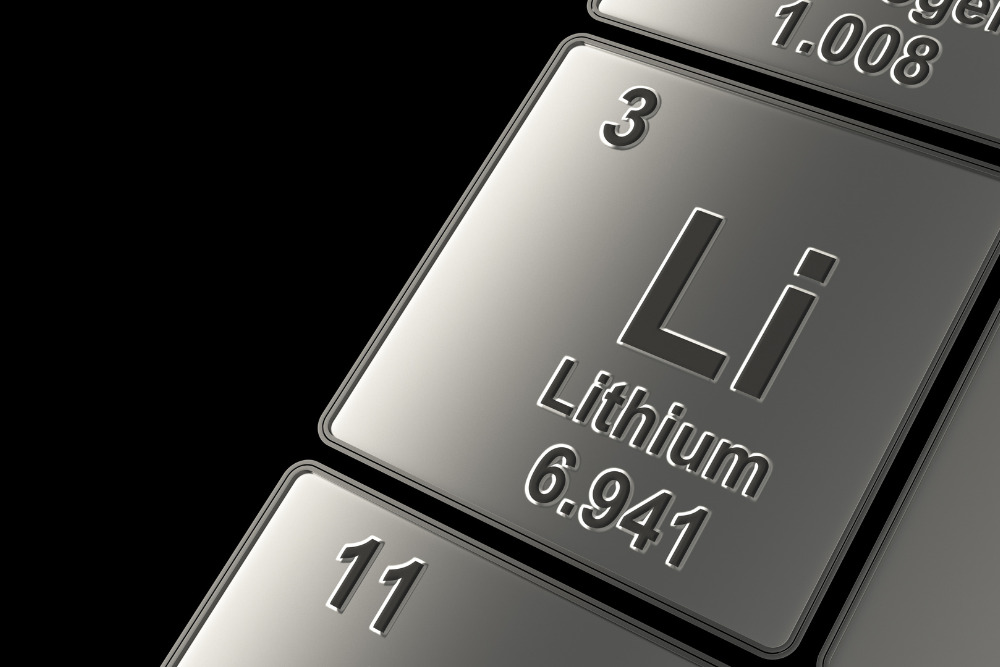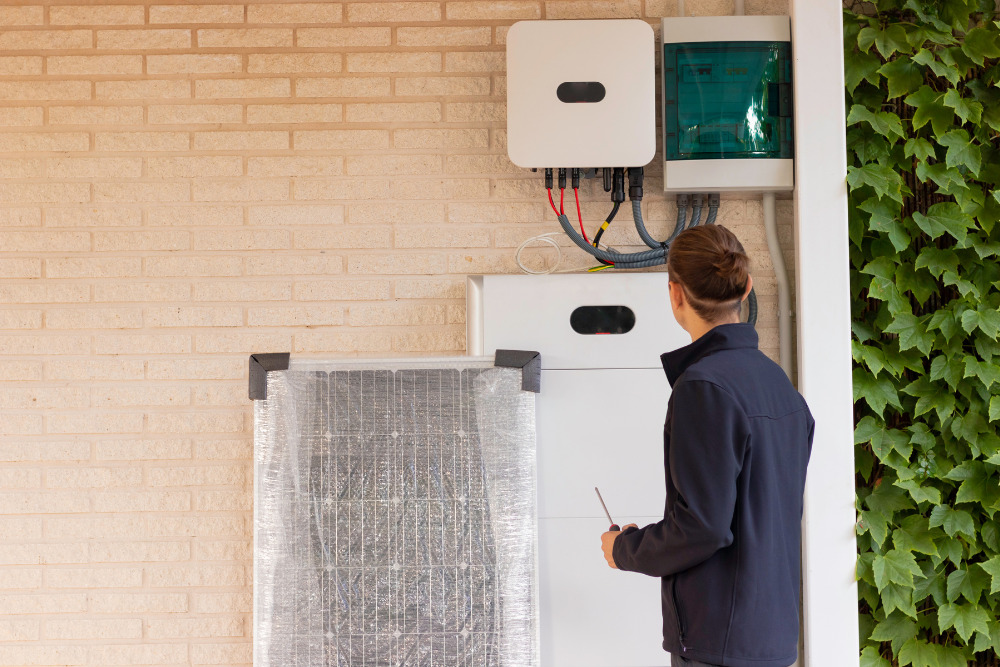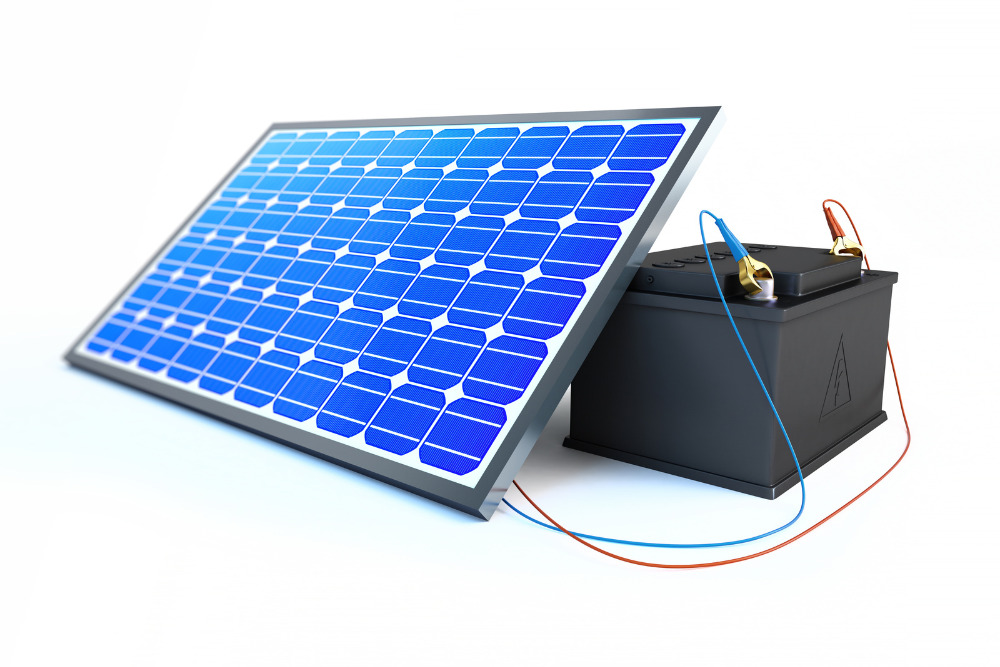
Solar batteries store excess energy, letting you enjoy a continuous power supply even when fluctuations or power outages occur. Residential solar batteries range in price from $8,500-$10,000 or more, though many factors contribute to the cost, such as battery type and energy usage.
If you plan to install a solar panel system to lower your carbon footprint and minimize energy bills, consider pairing it with solar battery storage. Since many brands are on the market, it helps to know how much solar batteries cost when you budget for installation.
What Is The Average Cost Of A Solar Battery?
Solar battery prices range from $8,500-$10,000 before tax credits. That does not include installation. Some high-end batteries can cost upwards of $30,000.
Like all aspects of solar, several factors affect the price of solar batteries, including:
Battery Chemistry
Several types of batteries exist based on their chemistry or what compound they use to convert and store solar energy. For instance, lead-acid batteries use lead compounds and an acidic electrolyte for energy storage. Lithium-ion batteries have lithium electrodes and flowing lithium ions to store energy.
Lead-acid solar batteries are typically cheaper than lithium-ion batteries, retailing at $5,000 - $15,000, since they have a lower depth of discharge (DoD) and require extra maintenance. Lithium-ion and lithium-ion-phosphate batteries retail at around $7,000 to $30,000. They're more durable, power dense, and low-maintenance.

Solar Battery Brand
You'll find solar batteries at different retail prices depending on the brand. Generally, the cost of a particular model will depend on its storage capacity, efficiency, and warranty. A battery's energy capacity (in kilowatt-hours/kWh) is how much power it can store, and efficiency is the percentage of stored energy the battery can release when demanded.
Solar batteries with larger energy capacities and higher efficiencies are pricier, and vice versa, because they store and release higher amounts of energy (there's minimal energy loss).
Here are some popular solar battery brands and their estimated costs (excluding installation):
| Brand | Cost per unit | Capacity | Efficiency | Warranty |
| Tesla Powerwall | $8,500 | 13.5 kWh | 90% | 10 years (70% capacity) |
| Generac PWRcell | $9,999 | 9.0 - 18.0 kWh | 96.5% | 10 years |
| Enphase | $3,000 - $9,500 | 3.4 - 10.5 kWh | 89% - 96% | 10 years (70% capacity) |
| LG Chem LESU | $6,000 - $11,000 | 9.6 - 16.0 kWh | 90% | 10 years (60% - 70% capacity) |
| Eguana Evolve | $10,000 - $13,000 | 12.2 - 12.8 kWh | 86.8% | 10 years (60% capacity) |
| Panasonic Evervolt | $12,000 - $13,000 | 4.6 - 17.1 kWh | 90% | 10 years (60% capacity) |
| Simpliphi | $4,200 - $23,500 | 4.9 - 22.8 kWh | 98% | 10 years (10,000 cycles) |
| Sonnen | $9,000 - $36,000 | 5.0 - 30.0 kWh | 81.6% - 85.8% | 10 years (10,000 cycles) or 15 years (15,000 cycles) |
Number of Batteries Installed (System's Capacity)
Solar owners' energy needs determine their system's capacity requirements. Also, the number of solar batteries they can install depends on the individual battery's energy capacity. Of course, the number of batteries needed contributes to the overall solar battery storage cost.

What Else Contributes To The Cost Of Solar Batteries?
Other factors that determine the cost of solar batteries include:
- Installation: Installers have varying installation charges depending on the size of your energy storage system, the amount of required labor, and your location. Large-scale installation will be pretty costly since it's labor and material intensive. Also, the total cost of installing solar batteries with the solar system can be lower than adding the storage later since the electrical work and permits will be done at once.
- Electrical upgrades to your home: Installing solar battery storage will cost more if you have to upgrade your home's wiring first.
- Maintenance and repairs: Some solar batteries, like the lead-acid type, are high-maintenance. Although their upfront costs are lower, you could spend more on repair and maintenance.
- Additional inverter: A solar panel captures energy in DC (direct current), and an inverter is needed to convert it to usable form or AC (alternating current). Some batteries have in-built inverters while others require the purchase of an additional inverter.
- Critical load panel: The energy stored by solar batteries is usually insufficient to power your entire home. A critical load panel backs up essential appliances like air conditioners, adding around $1,000 - $2,000 to your installation costs.
- Incentives, tax credits, and rebates: Incentives by the federal and state governments help lower installation costs. The federal solar tax credit is 30%, while California gives a battery rebate (self-generation incentive program) to encourage homeowners to shift to solar energy.
- Replacement: Most solar battery storage systems need replacement every 10 to 15 years. Replacing a few batteries is cheaper than re-installing an entire system. However, this will vary depending on the type of installed solar batteries.
How Long Do Solar Batteries Last?
A solar battery’s life span is between 5 to 15 years, so on average, a battery lasts 10 years.
Solar batteries have a shorter lifespan than solar panels and will require replacement at least once during the lifespan of your solar system.
The lifespan of a solar battery is subjective to factors such as:
- Battery type: Every solar battery’s shelf life is different. For instance, a lithium-ion battery will last 10-15 years, while a lead-acid battery expires after 5 years. But the life expectancy of flow batteries (newcomers in the market) exceeds that of lead-acid and lithium-ion batteries. Flow batteries can last up to 25 years.
- Depth of discharge (DoD): DoD is the maximum percentage of a battery's capacity it can discharge without damage. A solar battery with a higher DoD lasts longer since you can release more power at a given time without degrading it.
- Cycle of life: A battery's cycle of life is how long it takes to drain and recharge to completion. Your battery usage affects its cycle time and the battery's lifespan. So the more you use your battery, the fewer cycles and the shorter the life expectancy.
- Temperature: Extreme temperatures affect a battery's lifespan.
- Battery maintenance: Regular maintenance helps detect and resolve any issues with your solar batteries.
Can You Add A Solar Battery Later?
Yes. It's possible to add solar battery storage to your existing solar system.
On the downside, adding solar battery storage to an existing solar system is more expensive because it requires:
- Extra permits
- More electrical work (additional labor)
- Special inverter (depending on the type of battery you choose)
What Are The Benefits Of Solar Energy Storage?
Solar energy storage offers homeowners a wide range of benefits, including:
- Resiliency: Solar batteries provide backup power during blackouts and extreme weather conditions. This emergency battery backup will keep your home's lights on and some appliances (like your fridge) running.
- Energy independence: If you've been receiving electricity from the grid, saving your solar power can reduce the amount of energy you pull from utility companies. Installing solar battery storage is a great way to go off-grid and become energy independent.
- Financial benefits: Although being grid-tied has a few advantages, like net metering, it has some shortcomings. For instance, the time-of-use rate (on the grid system) increases system costs since you're charged higher at peak demand hours. Energy storage lets you use the saved power from your solar batteries during peak hours.
- Environmental benefits: Solar installation coupled with battery storage allows you to shift to clean, renewable energy, which is good for the environment as it minimizes dependence on fossil fuels and carbon emissions.


